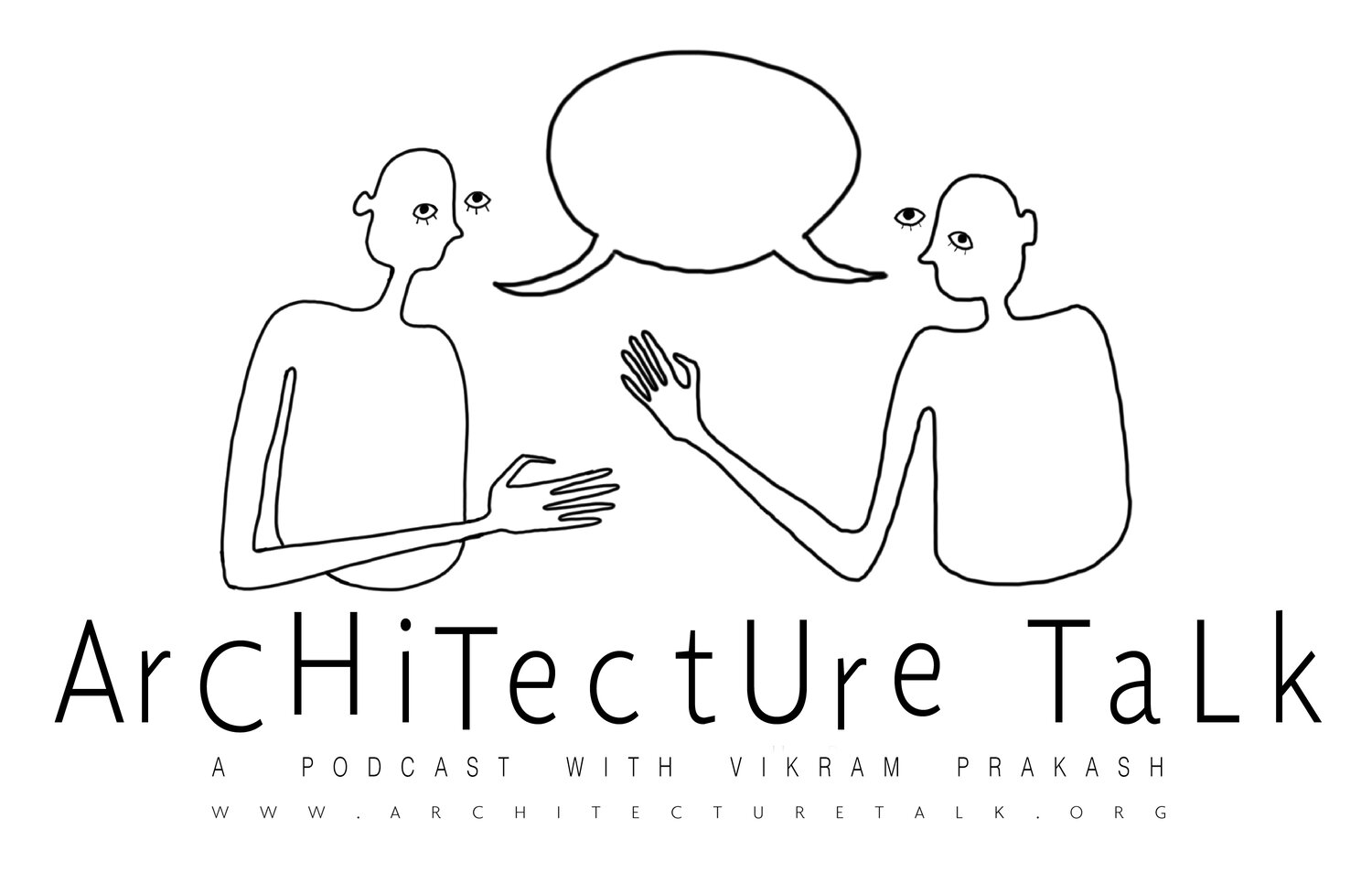105. Revisiting the Modern and the Global, a reissue and crossover episode with Anthony Vidler and Mark Jarzombek
Original Drawing by Tori Haynes
“For me, Modernism is the defensive realization that we are already on a course to a kind of auto destruction, wether or not we know when it will be or wether or not we know what it will be, we know it is not going to be kind.”
Anthony Vidler
This week, we revisit two past episodes as a preamble to the forthcoming panel discussion “One Continuous Line: is Indian MidCentury Modernism still relevant today?” In this crossover episode we discuss the project of Utopia and its colonial situatedness, modernity and its critiques, and the ways in which global thinking (dis)connects with deconstruction.
Timestamp Outline
* we return to this conversation now that the book One Continous Line has been released
* This is a preamble to the panel discussion planned for June 24th, 2021 with Vikram Prakash as Moderator, and with Panelists: Mark Jarzombek, Anthony Vidler, Partha Mitter, and Sunil Khilnani
2:30 “What do you think about the valence of thinking in the era of climate change and sustainability and the technologized present?” VP
2:50 “I think its technologized and its still Hegelian. In other words it has the extraordinary effect of the big narrative...the big narrative that was progress in the enlightenment, the big narrative that was the Hegelian dialectics of historical development towards a philosophical community that got adopted as the structure of academic history...I still think that the chronological narratives of the anthropocene and the catastrophe theories in relation to climate change (which are correct!)...are in fact obscuring the possibilities of any form of mediatry action in the present.” AV
4:00 e-flux article Enterprises of Survival referenced by Vidler - on living the catastrophe and not awaiting the catastrophe
6:00 Voltaire’s Poème sur le désastre de Lisbonne
7:00 “So what is the project of utopia?”- VP, Anthony describes the construction of, “…idealized worlds outside of the worlds we know…” (Vidler) referencing Thomas More’s Utopia and the classic work of literature, Robinson Crusoe
8:20 Anthony suggests that this idea of, “…Utopia as a settlement plan,” was clearly demonstrated in the Missions in Paraguay
8:40 “…there is nothing in Plato that is not about greek expansion…” AV
9:30 Anthony expands into a brief discussion of aesthetics describing Hegel’s symbolic moment
11:20 “What is agency in [the narrative in which we are taught to live]? What is architectural agency?” VP
11:40 Anthony references Donna Haraway’s, Staying with the Trouble, as one way of understanding how we are already living the catastrophe.
12:07 “…the problem, with architecture, is that architecture has always a narrative that has an agency within its discipline…it has its historical roots and its historical, continuous transformation…” AV (Here Anthony references the legacy of Vitruvius in the tradition of architectural theory and its constant translation, in particular through the Ecole de Beaux arts)
12:50 Anthony references James Stirling’s Leicester Engineering building
14:25 Anthony returns to the e-flux article
15:40 Discussion of atelier Bow Wow’s exhibit, “The Japanese House: Architecture and Life after 1945” (in passing Vikram and Anthony reference here the situationists)
17:50 Anthony recalls the initial spark of his interest in Utopia, referencing the influence of British architecture critic, Martin Pawley
19:50 Anthony references Foucault as the dark side of enlightenment.
19:59 Here, Anthony references Poetry after Auschwitz
21:30 Anthony discusses Modernism and Postmodernism and the trouble with naming references Pevsner and his PhD student Reyner Banham
22:04 “…the poor graduate students that have to read Deleuze without having a single notion that Deleuze in The Fold is talking about litmus…” - AV
28:30 In his closing comments, Anthony describes how he aims to collect a career’s worth of thoughts into something like Banham’s “Theory and Design in the First Machine Age”
* transition to conversation with Mark Jazombek
30:55 Magdalenian culture and civilization: the caves. The Gravettians.
32:05 A Global History of Architecture textbook + GAHTC: what is this global project?
33:30 Modernism, Postmodernism, and the critical question of the “after the modern”
39:22 Modernism as dualism: the good and the bad in equal doses, continuously, vs a Hegelian dialectic (destruction at the end)
41:44 “How to develop a critique that doesn’t entrap you into being complicit in one side of the game or the other side of the game?” -MJ
“Isn’t this desire for objectivity a modernist sentiment?” -VP
42:24 “Where does one enter, and where does one exit out of the modern?” -MJ
45:39 Ethics, rights, powers, and personal agency
46:42 Give money to Greenpeace but not on the boat: individual agency and the social matrix
50:20 “Ethical in a particular way,” haunting to one’s subject-position
50:30 The shadowy terror of monotheism
51:36 The ‘Global’ as an ethics-opening term
53:00 Parallels and intersections of global histories with the craziness emerging with quantum theory in astrophysics
55:30 Uncertainty, possibility, and knowing (Meeting the Universe Halfway, Karen Barad)
56:35 Modernism and a vortex of non-dualities
58:33 Derrida as a “renegade rabbi”: reading from the margins
59:40 Connection between new materialism, French poststructuralism, psychoanalysis, Jewish philosophy and Buddhist thinking?
60:57 No singular global can apply to everything
61:16 Biography as entry? Significance of personal epistemologies in critical thinking of the world.
70:00 Limitations of Derrida’s critiques: Western critique, ethics and Buddha’s ear to the ground [parallel discussion in Episode 5]
70:40 “Other oralities need to be known.”: this is the global history project
“Writing on writing. Writing on writing on writing.” Iterations
Writing corrodes oral-communicative structures





